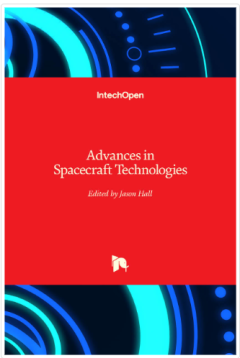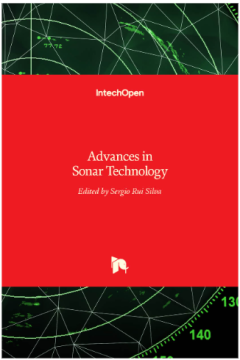Filter by

Advances in Spark-Ignition Engines
This book focuses on advanced techniques to reduce the impact of the transport sector and, more specifically, of Spark-Ignition (SI) Internal Combustion Engines (ICEs) on atmospheric air pollution and climate change. Hybrid vehicles represent the most suitable option for addressing these issues in the medium term, since hybridization allows us to overcome the major disadvantages of ICEs, electr…
- Edition
- 1
- ISBN/ISSN
- 9783036557014
- Collation
- -
- Series Title
- -
- Call Number
- -

Advances in Spacecraft Technologies
The development and launch of the first artificial satellite Sputnik more than five decades ago propelled both the scientific and engineering communities to new heights as they worked together to develop novel solutions to the challenges of spacecraft system design. This symbiotic relationship has brought significant technological advances that have enabled the design of systems that can withst…
- Edition
- 1
- ISBN/ISSN
- 9789533075518
- Collation
- -
- Series Title
- -
- Call Number
- -

Advances in Spacecraft Systems and Orbit Determination
"Advances in Spacecraft Systems and Orbit Determinations", discusses the development of new technologies and the limitations of the present technology, used for interplanetary missions. Various experts have contributed to develop the bridge between present limitations and technology growth to overcome the limitations. Key features of this book inform us about the orbit determination techniques …
- Edition
- 1
- ISBN/ISSN
- 9789535103806
- Collation
- -
- Series Title
- -
- Call Number
- -

Advances in Spacecraft Attitude Control
Spacecraft attitude maneuvers comply with Euler's moment equations, a set of three nonlinear, coupled differential equations. Nonlinearities complicate the mathematical treatment of the seemingly simple action of rotating, and these complications lead to a robust lineage of research. This book is meant for basic scientifically inclined readers, and commences with a chapter on the basics of spac…
- Edition
- 1
- ISBN/ISSN
- 9781839685163
- Collation
- -
- Series Title
- -
- Call Number
- -

Advances in Sonar Technology
The demand to explore the largest and also one of the richest parts of our planet, the advances in signal processing promoted by an exponential growth in computation power and a thorough study of sound propagation in the underwater realm, have lead to remarkable advances in sonar technology in the last years.The work on hand is a sum of knowledge of several authors who contributed in various as…
- Edition
- 1
- ISBN/ISSN
- 9783902613486
- Collation
- -
- Series Title
- -
- Call Number
- -

Advances in Fundamental Physics
- Edition
- -
- ISBN/ISSN
- 9783036557458
- Collation
- -
- Series Title
- -
- Call Number
- -
- Edition
- -
- ISBN/ISSN
- 9783036557458
- Collation
- -
- Series Title
- -
- Call Number
- -

A Guide to the Heavens: The Literary Reception of Herman Hugo's "Pia Desideri…
This book is available in open access thanks to the generous support of the Adam Mickiewicz University, Poznań This is the first monographic study of the reception of Herman Hugo's emblem book Pia desideria (1624) in the Polish-Lithuanian Commonwealth. It discusses ten different translations and adaptations, showing how the engravings, elegies and exegetical extracts of the original edition…
- Edition
- -
- ISBN/ISSN
- 9789004547285
- Collation
- -
- Series Title
- -
- Call Number
- -

A guide to the African human rights system: Celebrating 30 years since the en…
A guide to the African human rights system: Celebrating 30 years since the entry into force of the African Charter on Human and Peoples' Rights 1986 - 2016 Edited by Centre for Human Rights, Faculty of Law, University of Pretoria 2016 ISBN: 978-1-92053-56-9 Pages: 80 Print version: Available Electronic version: Free PDF available
- Edition
- -
- ISBN/ISSN
- 978192053569
- Collation
- 80 hlm
- Series Title
- -
- Call Number
- -

A Guide to Sustainable Corporate Responsibility : From Theory to Action
- Edition
- -
- ISBN/ISSN
- 978-3-030-88203-7
- Collation
- -
- Series Title
- -
- Call Number
- -
- Edition
- -
- ISBN/ISSN
- 978-3-030-88203-7
- Collation
- -
- Series Title
- -
- Call Number
- -

A Guide to Small-Scale Energy Harvesting Techniques
The use of energy it is argued started about two million years ago when humans started cooking their food using firewood. As humans developed new skills with increased activities, energy interaction and usage emerged. Energy was used not only for domestic functions but also for space applications. With industrialization, humans realized that energy was needed to move machines and do other thing…
- Edition
- -
- ISBN/ISSN
- 978-1-83968-506-4
- Collation
- 148 hlm
- Series Title
- -
- Call Number
- -
 Computer Science, Information & General Works
Computer Science, Information & General Works  Philosophy & Psychology
Philosophy & Psychology  Religion
Religion  Social Sciences
Social Sciences  Language
Language  Pure Science
Pure Science  Applied Sciences
Applied Sciences  Art & Recreation
Art & Recreation  Literature
Literature  History & Geography
History & Geography